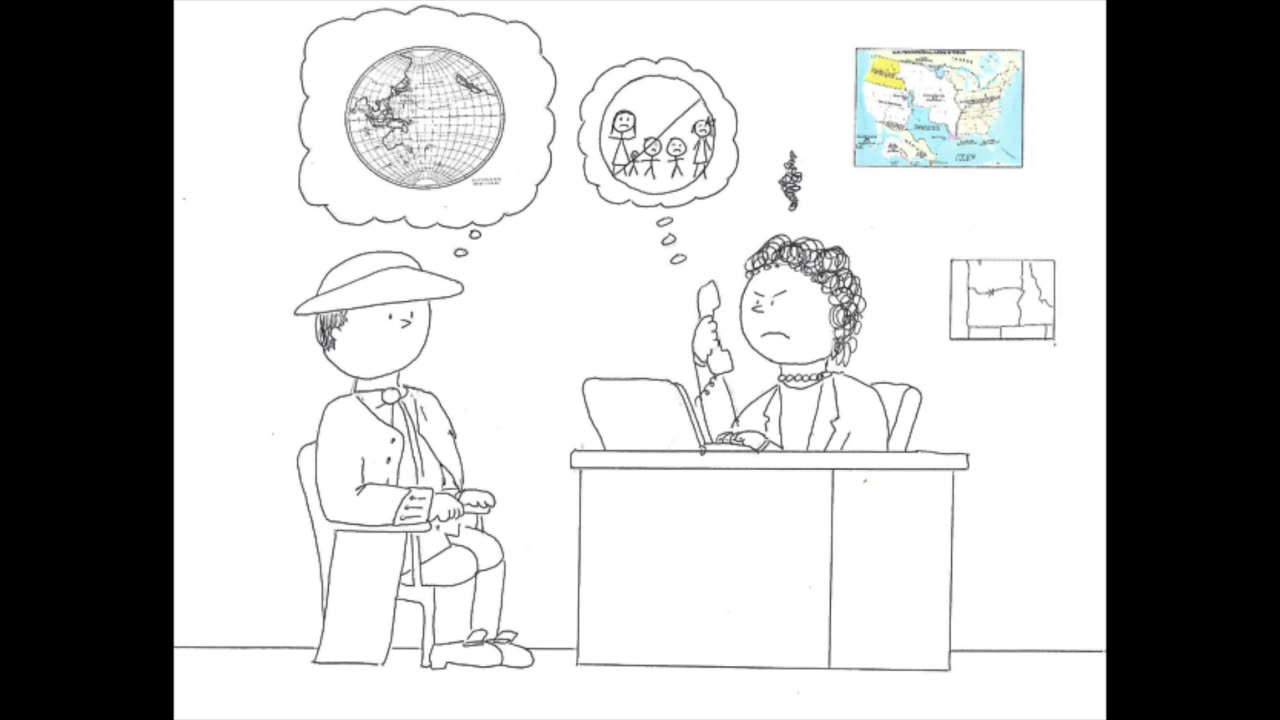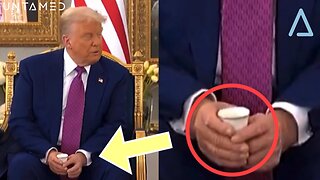Premium Only Content

Travail Agent
One of the most difficult things to understand about the protagonist Dr. Lemuel Gulliver from Johnathan Swift’s book “Gulliver’s Travels” (1726) is his complete lack of appreciation for the gifts that have been bestowed upon him. Dr. Gulliver is a surgeon, has a loving wife and children, and a close network of friends. Yet he repeatedly leaves his family and friends for years at a time (because he is, in his words, “…condemned, by nature and fortune, to active and restless life,” see Part II, Chapter 1) to take the adventures documented in the book.
It’s unclear what happens to Dr. Gulliver’s wife Mary and their children during his absence. They may have been taken care of financially (e.g., before his second journey, Dr. Gulliver left his wife and family 1500 pounds, and his family had a steady income from a couple of estates Dr. Gulliver owned), but nothing is known of how Dr. Gulliver’s family handled his absence psychologically (e.g., the wife wondering when or if her husband would ever return, the children without a father figure in their lives, etc.).
To add insult to injury, after coming home from these “unfortunate voyages” (see Part II, Chapter 8), Dr. Gulliver comes back armed with fantastic stories to tell, but little in the way of money and very little proof that he actually took these journeys in the first place (apart from the tiny livestock he brought from Lilliput and eventually sold).
Also note that the 16 years he spent on journeys in “Gulliver’s Travels” away from his wife and children don’t even include the six years that he spent away from his wife in the East and West Indies prior to the beginning of this book, which, unlike his main travels, netted a fortune.
If Dr. Gulliver was required to go on all of these journeys (say, he was an officer in the Royal Navy), that would be one matter, but the fact that he freely chose to go on these journeys when as a surgeon there surely must have been many more opportunities where his family could go with him leads CoBaD to have very little sympathy for his plights overseas. Indeed, upon completing his final journey, the reader is left with the enduring image of Dr. Gulliver, perhaps still dressed in his coat made of skins, his wooden-soled shoes and furred stockings (gifts from his Houyhnhnm master), sulking like a spoiled child, despising humans, especially his “odious” wife and “intolerable” children (Part IV, Chapter 11), comparing them to the savage and stupid Yahoos, and eventually agreeing to dine with his wife so long as she kept her distance so that he could not smell her, and only when his nose was stuffed with rue, lavender or tobacco leaves (Part IV, Chapter 12).
What’s particularly perplexing about Dr. Gulliver’s misanthropy is that the humans he so despised are the only ones that consistently welcomed him with open arms every time he returned from his self-centered years-long exploits, even though his family and friends had every right to turn him away (his wife was already getting fed up with his leaving her and the kids alone upon Dr. Gulliver’s return from his second voyage). In contrast, on almost every journey Dr. Gulliver went on, he was either hated or forcibly removed from the lands he visited, some of whom were individuals he supposedly looked up to (so to speak).
One wonders why such an ungrateful “protagonist” as Dr. Gulliver is so well loved in literature. Perhaps it is because he is so relatable. A good analogy is that of a freshman “nerd” in high school. The freshman is firmly embedded in the “nerd” clique, but he wants to fit in with the “rebel” or “jocks” clique. He gets rejected and is forced to return to the land of the nerds. Every time upon returning to his “native land,” he is warmly welcomed back, yet with each rejection he becomes more and more blind to his warm surroundings and becomes more determined than ever to leave his clique mates behind for allegedly greener pastures. Sadly, like the nerd, we oftentimes just don’t count our blessings; we lust for what we don’t have rather than appreciate what we do have.
-
 LIVE
LIVE
Untamed Nation
35 minutes agoTRUMP AVOIDS GETTING POISONED IN SAUDI ARABIA ⚠ THEY ROLLED OUT THE PURPLE CARPET! Joe Oltmann and Matt Wallace | 12 May 2025
759 watching -
 1:17:51
1:17:51
Awaken With JP
4 hours agoTrump's Move on Big Pharma + Other Things That Piss Off Liberals - LIES Ep 91
117K20 -
 LIVE
LIVE
StoneMountain64
1 hour agoModern Warfare 2 Weapons NO ONE is using
219 watching -
 LIVE
LIVE
Akademiks
5 hours agoDay 3/30. Diddy Trial Day 2. CASSIE takes the STAND? the FREeKOFF Details r Revealed. NASTY STUFF
2,629 watching -
 LIVE
LIVE
The HotSeat
1 hour agoExposing Biden’s Brain Rot While the Left Screams Over 59 White Asylum Seekers
645 watching -
 33:07
33:07
The Quartering
3 hours agoDiddy Trial Hollywood BOMBSHELL, Karmelo Anthony Gets HUGE GIFT, Snow White Humiliated Again,
118K44 -
 49:23
49:23
Stephen Gardner
2 hours ago🔴Trump Furious | Pam Bondi and DHS ORDERED to make a MASSIVE MOVE!
20.4K51 -
 47:01
47:01
Coin Stories with Natalie Brunell
2 hours agoJack Mallers on Borrowing Against Bitcoin, Full Scoop on Twenty One Capital, & Emerging World Order
2.33K2 -
 19:59
19:59
Neil McCoy-Ward
1 day ago⚠️ It Just Happened! (London MASS Power Outage!)
1.19K9 -
 32:39
32:39
ArturRehi
4 hours agoCHAOS Continues in Russia | Putin cannot handle it | Ukraine Update
11